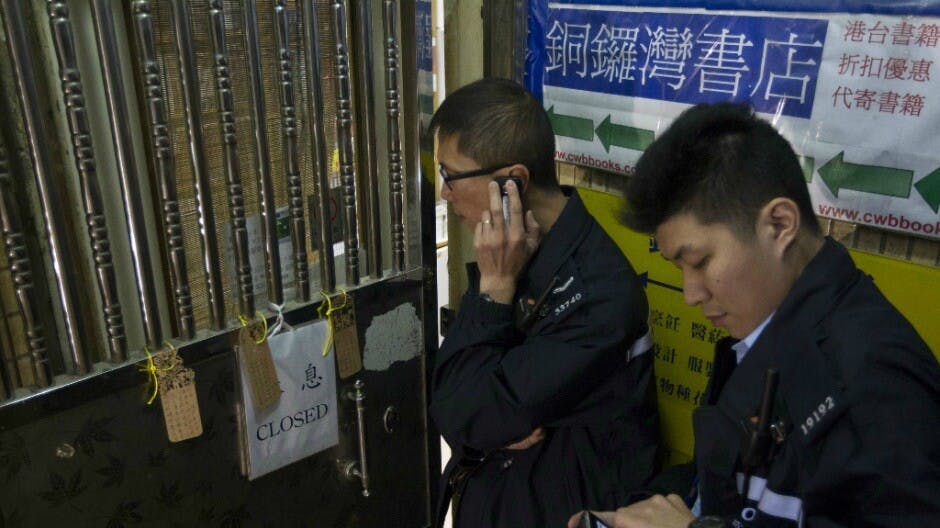The unprecedented consensus that has been reached between law enforcement authorities in Hong Kong and their counterparts on the mainland should help end what has become a regular problem between the two sides. Under the new reciprocal notification mechanism, within 14 days, each side will inform the other of cases where one or more of its residents has been detained.
Specifically, the four principles of “acting in accordance with law, embracing differences, identifying mutually beneficial grounds and protecting human rights” will soon be inserted into a formal agreement to be signed by both sides.
The consensus can be seen as a much-needed breakthrough in the cooperation between the security forces on either side of the border. It has tremendous significance in relation to any case that involves residents of Hong Kong who may be accused of violating mainland law and as a consequence may be detained by the mainland police authorities.
First and foremost, Hong Kong and the mainland have not yet reached any rendition agreement. As such, the transfer on July 28 of a Hong Kong fugitive from the mainland police to their Hong Kong counterpart on the border-spanning Lok Ma Chau Bridge could be regarded as the formal introduction of this new crime-fighting arrangement to hand over cross-border criminal suspects.
The suspect, identified by mainland police as Jie Guanguo, but known in Hong Kong as Kit Kwun-kwok, was arrested on the mainland for his suspected involvement in the killing of Yiu Chik-chuen, a Tai Po money exchange operator who was fatally wounded on March 14 when attacked with a box-cutter. Arguably, the suspect’s transfer could also be seen as a triumph in the protection of the interests of the “Two Systems”, because Hong Kong’s security autonomy has been safeguarded by the return of Kit to the Hong Kong police.
Second, the four principles that were agreed between both sides on July 28 can also be seen as a progressive step forward that clarifies the ambiguities in the current arrangements with regard to those Hong Kong people who may violate mainland law, and who may be detained by the mainland authorities for further investigation.
Let us now turn to the recent case of the Hong Kong bookseller Lam Wing-kee. The circumstances surrounding his case appeared to demonstrate that, from the mainland police’s perspective, he was involved in “cross-border crime” in that books banned on the mainland were handled by him in an illegal way on the mainland. This point was made by Ministry of Public Security officials on July 5, when they showed a 15-minute video of Lam’s confessions to a Hong Kong delegation led by Secretary for Justice Rimsky Yuen Kwok-keung.
Hence, other cases similar to Lam’s in the future would be handled more formally, especially since under the new notification system the mainland police would be expected to inform the Hong Kong police of their detention within the 14-day time frame and in the interests of the protection of human rights.
When Secretary for Security Lai Tung-kwok led our delegation into the conference venue in Shenzhen on July 28, it was noticeable that the party included not only senior police and security officials but higher-ups from the Immigration and Customs and Excise Departments. The mainland delegation was led by Vice-Minister for Public Security Chen Zhimin, who explained that both sides had agreed to update the notification system whereby information was exchanged between the two sides. He added that the “mechanism” that both sides would in future be employing would be within the framework of the “One Country, Two Systems” principle and would protect the legal rights of residents on either side of the border.
Police cooperation between the two sides has remained highly effective in tackling cross-border criminal activities, which include drug trafficking, telecommunication fraud, human smuggling, kidnapping, and triad activities. Since July 1, 1997, joint anti-crime campaigns have often been conducted simultaneously by the police in Hong Kong, the mainland and Macao to deter crime.
The so-called booksellers case was particularly complex and would benefit from a clear notification mechanism. Considering Article 23 of the Basic Law has not been locally legislated, from the mainland perspective it can be perceived as a legal vacuum in that Hong Kong people who are suspected of being involved in breaking mainland security laws may see Hong Kong as a “sanctuary”, taking advantage of the fact that there is no formal rendition agreement between Hong Kong and the mainland, while the two places have very different legal systems. In June, a mainland commentary claimed that while mainland law-enforcement authorities had transferred 170 criminal suspects to Hong Kong, Hong Kong had not returned a single suspect to the mainland.
A major hurdle in reconciling the two legal systems is the existence of the death penalty on the mainland but not in Hong Kong. It may take years before any rendition agreement is reached.
But in the spirit of good will and trust, the police consensus of July 28 can be seen as a triumph of cross-border police cooperation. So instead of saying that “One Country” overrides the “Two Systems”, the reaching of the four principles can be hailed as a triumph of common sense and respect for procedural due process.
原刊於《China Daily》(Asia),獲作者授權轉載。
(封面圖片:亞新社)












































